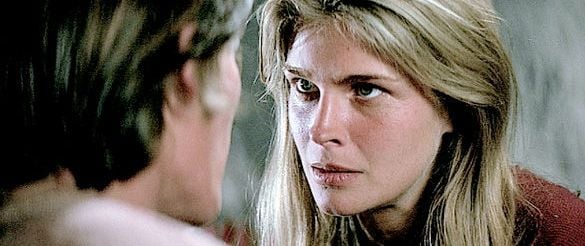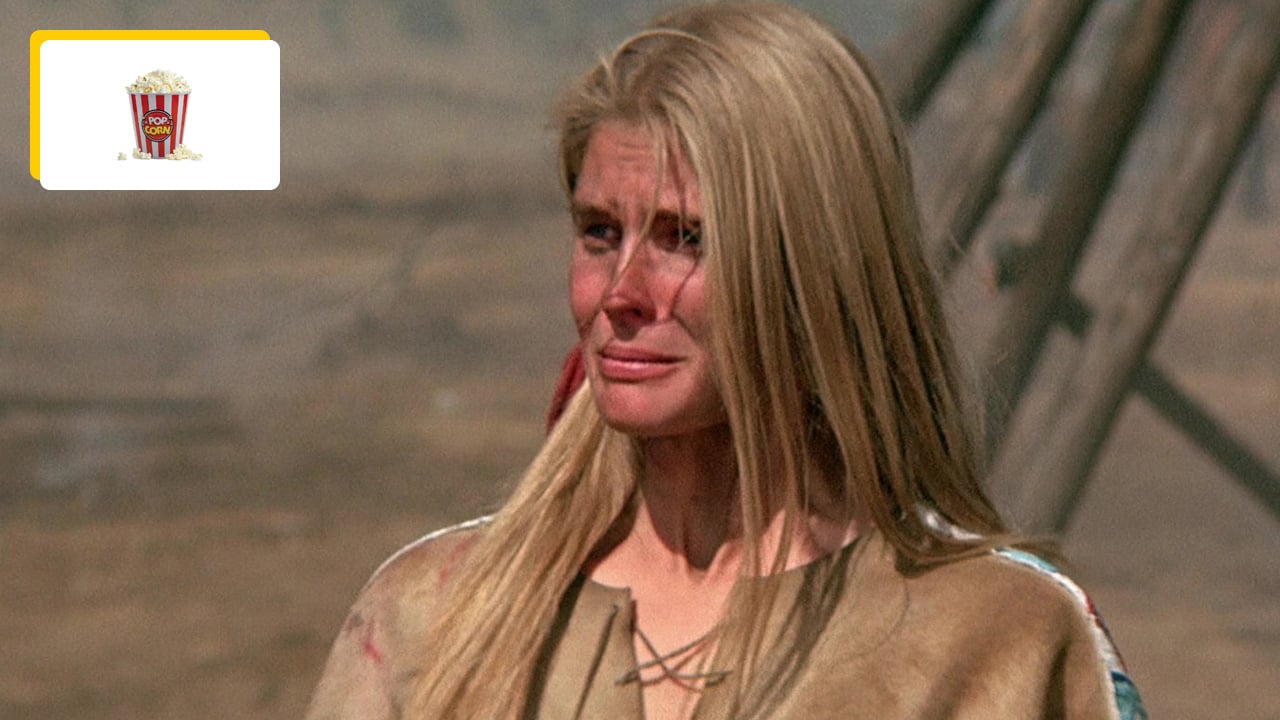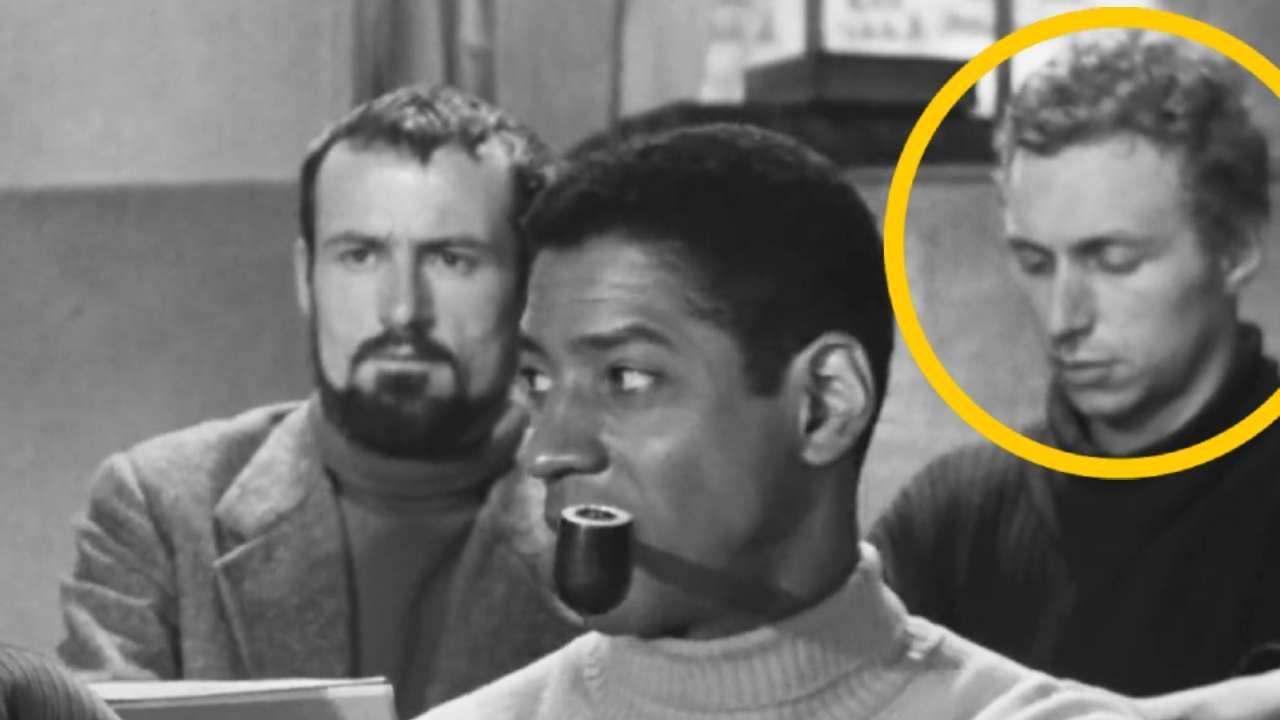An actor-turned-director who is largely forgotten today, Ralph Nelson was nevertheless an eclectic filmmaker, signing some memorable works that are worth a detour. For example, his Lily of the Field, released in 1963, allowed Sidney Poitier, who agreed to take a pay cut to make the film, to win the Oscar for Best Actor.
In 1968, he brought Daniel Keyes’ brilliant and moving SF novel to the screen. Flowers for AlgernonTitled Charlie. The performance of Cliff Robertson, who played the main character, won the Oscar for the best actor.
The theme of racism never stopped in Nelson’s filmography. In 1975, his Wind of Violence was one of the first films to evoke the drama of apartheid in South Africa. Five years earlier, he signed a work that can be considered the pinnacle of his career as a director. Shocking Western: The Blue Soldier.
story? An American army convoy accompanying a large convoy of funds was attacked by the Cheyenne. Only a young soldier, newly recruited, and a young woman who had once been kidnapped by the Cheyennes survived. Both of them will have to reach the nearest fort, which is several days away… Informed, the American cavalry decides to intervene. Departure is given at Sand Creek, a peaceful Cheyenne camp…
“West Vietnam”
Just as Little Big Man did in 1970, portraying General Custer very far from the popular image he left behind, blue soldier is one of those films, especially from the 1960s (with a few exceptions), that largely undermines the grandiose myth of Western conquest, which most often gave poor roles to the Indian population. The real enemies here are white people.
But Ralph Nelson’s western goes further than Arthur Penn’s, as the film’s subject is one of the worst crimes committed by the American military. Massacre at Sand Creek, Colorado, November 29, 1864, by 800 men belonging to the 1st and 3rd Colorado Cavalry Regiments, as well as the 1st Company of the New Mexico Volunteer Regiment, against the Cheyennes.
By order of the colonel John ChivingtonCalled Colonel Iverson in the film, the soldiers killed many women, children and the elderly, took about a hundred scalps, and committed numerous rapes and mutilations, including genital mutilation, which the soldiers carried off as trophies.
The massacre, which would be described as follows by an army judge during a later commission of inquiry: “A cold-blooded cowardly executioner, enough to cover his perpetrators with indelible shame and shame and indignation in the faces of all Americans.”

Ralph Nelson’s film belongs to what Thomas Schatz, a communications professor at the University of Texas at Austin, has called “West Vietnam.” Blue Soldier is a manifesto against this war. In 1970, Richard Nixon ordered the bombing of Vietnam’s border area with the neutral country of Cambodia, which escalated the conflict.
1971 was also the year that Lieutenant William Calley, responsible for the My Lai massacre in March 1968, in which between 350 and 500 civilians were killed, was sentenced to life in prison for manslaughter; Before Nixon’s intervention changed the sentence to house arrest. This affair, one of the most infamous in the history of this war, greatly contributed to the rise of pacifist movements in the United States.
The film is threatened with an X rating
The carnage in question in The Blue Soldier comes at the end of a very violent break in tone in the film, quite unsettling, even if the entire work leans towards this ultimate tragedy. The result on screen is soothingly violent.
The production even flew in real amputees from Mexico City to film this shocking scene. In fact, its violence was such that the scene was cut by almost twenty minutes to avoid the infamous X rating in the US.
Soldier Blue was a huge failure at the box office when it was released in the United States. “This movie was a mirror of life and Americans couldn’t stand it” will say its lead actress Candice Bergen, who is committed to defending the cause of the Indians.
A unique work, still very little known, that deserves serious (re)discovery. It’s also just been released in a very nice 4K copy, but it’s also available on VOD.
Source: Allocine
Rose James is a Gossipify movie and series reviewer known for her in-depth analysis and unique perspective on the latest releases. With a background in film studies, she provides engaging and informative reviews, and keeps readers up to date with industry trends and emerging talents.







